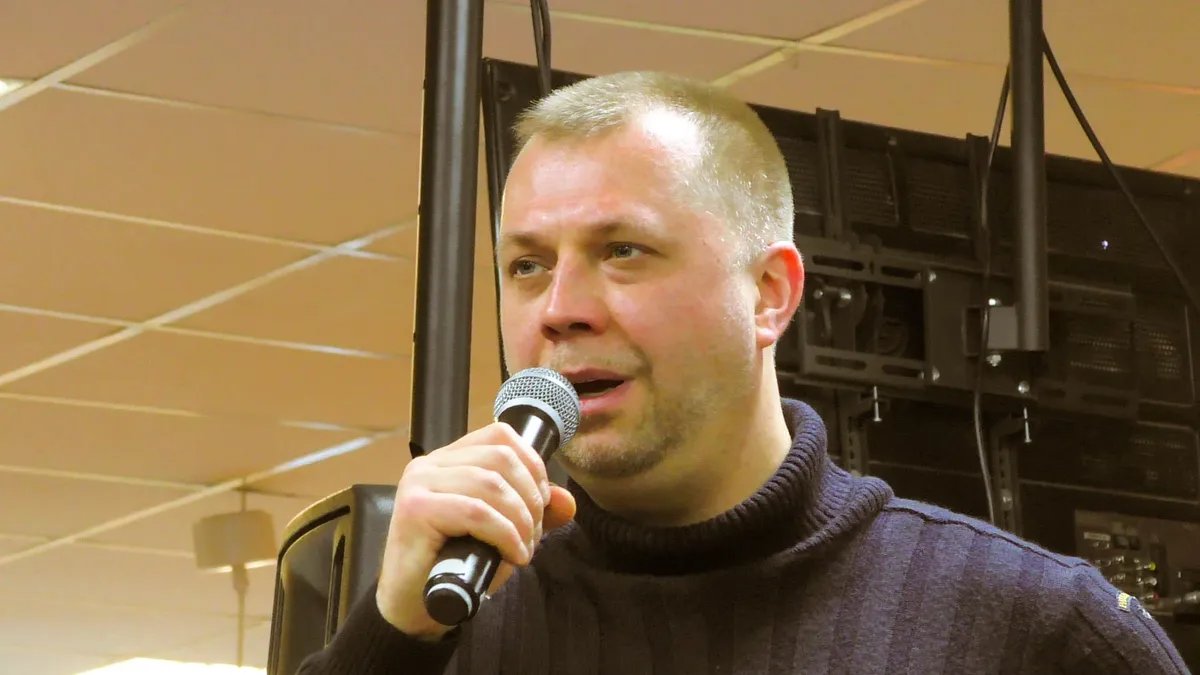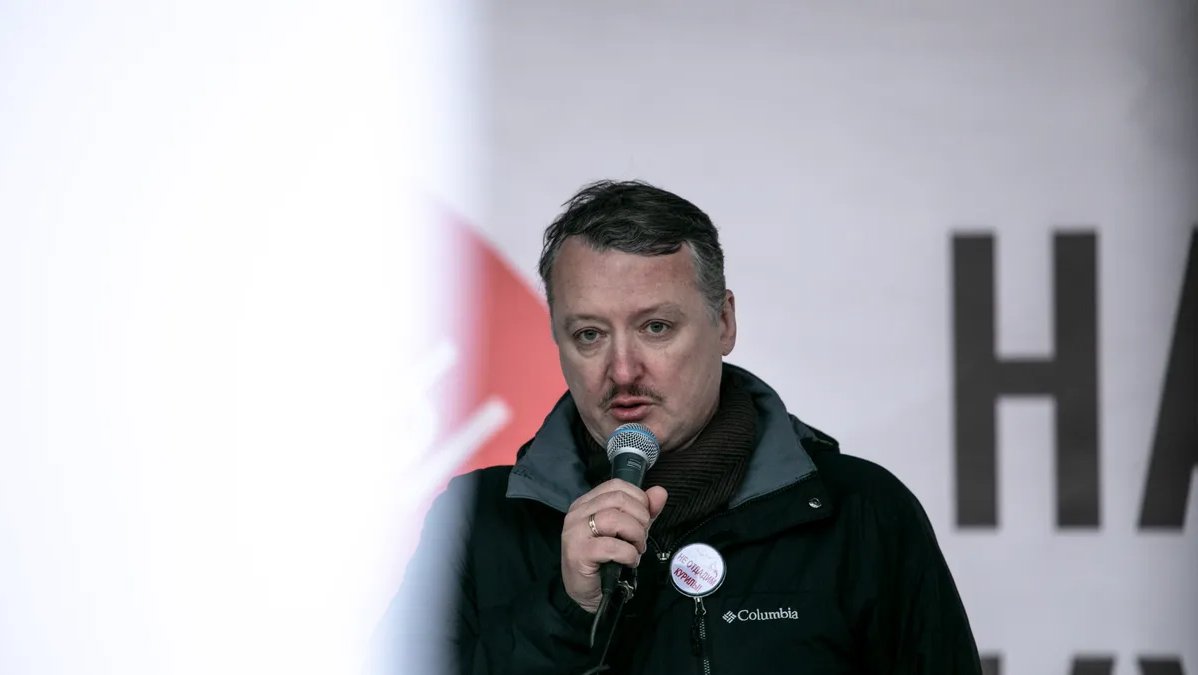Igor Strelkov (Girkin), a retired serviceman and a war criminal, a former FSB officer and once a “defence minister of the Donetsk People’s Republic”, was detained on 21 July. He was recently found guilty of taking down the MH17 Boeing in July 2014 by a court in The Hague and sentenced for life. But in an unexpected turn, he was arrested in Moscow instead.
Three days prior to that, Vladimir Kvachkov, another member of the so-called “patriots” faction and a former Russian military intelligence officer, was charged with discrediting the Russian military. He is not yet in custody, unlike Strelkov who was sent to a pretrial jail by a court decision and charged with online calls for extremism.
Support independent journalism
Strelkov a.k.a. Girkin gained his notoriety in 2014 when the War in Donbas started. It was his page on VK, Russia’s social media, that mentioned “a downed bird” on 17 July 2014, a bird that later turned out to be a passenger MH17 flight with almost three hundred people onboard.
Later that year, Strelkov stated that it was his detachment that started this war: “If our detachment had not crossed the border, it would all end up just as it did in Kharkiv and Odesa. A few dozens of people would be killed, burned, or arrested. And that would be it,” he said as he spoke to the Zavtra newspaper.
Up until a certain point, it appeared as if Strelkov was entirely loyal to the Kremlin, and despite making some harsh statements, he seemed to be generally cut from the same cloth as Russia’s authorities.
“Strelkov matched some of Putin’s strategic goals and ideology,” political scientist Abbas Gallyamov notes. “At the same time, the utmost inefficiency of the system was evident to him, as well as its inability to reach the goals that this ideology dictates.”
“He knew that the goals they believe to be the right ones could not be achieved due to the regime’s extreme inefficiency and imbecility,” Gallyamov says.
On the afternoon of 21 July, Strelkov’s Telegram channel posted a message allegedly written by his wife Miroslava Reginskaya. She informed Strelkov’s followers that her husband had been “detained and taken to who knows where”. She also noted that he had been charged with extremism.
Strelkov’s Telegram channel has almost 900,000 followers. In the channel, he used to criticise the Russian army and its top brass every now and then, including the Supreme Commander-in-Chief, as well as all their actions in Ukraine. He criticised not the war itself, but rather specific steps that he believed were not aggressive and resolute enough.
People opposing the war would also read Strelkov’s channel, making a point that it was a good source of information regarding what was really happening on the front lines.
On 18 July, Strelkov outdid himself, posting this statement on Telegram: “For 23 years, a complete nobody has been in charge of the country, and he managed to throw dust into the eyes of a large part of the nation.”
“Our country will break down if this cowardly hack stays in office for another six years,” Strelkov stated.
Apparently, some “cowardly hack” was offended by this. The criminal case was initiated the same day, and Strelkov appeared in court on 21 July.
This was hardly surprising for him.
It became clear that after the regime had managed to cope with the criticism from the liberal-minded people by either throwing them to prison or forcing them out of the country, the next target would be the “patriots”.
“Nationalists of all kinds are a bigger threat to the regime than the liberals,” political scientist Nikolay Petrov believes. “They potentially have more support in the society.”
“While fighting against the liberal opposition, the regime tolerated criticism from its ideological allies,” sociologist Nikolay Mitrokhin says. “It has now turned out that this criticism serves as an ideological basement for Prigozhin-like rebellions, undermines the singleness of authority in the military, and generally threatens the regime. The real threat of such mutinies doesn’t appear to be that serious, but it is evident that Putin and his circle were frightened by it. Now they are putting all their effort into eradicating what has been a would-be threat only so far.”
The sociologist believes that the “patriots” will be now persecuted with the same vigour as liberals.
Abbas Gallyamov thinks that the regime does not tolerate any kind of criticism, and it completely lost its nerve after Prigozhin’s mutiny.
“Strictly speaking, it is a bad move for them to go after Strelkov. Here’s what is going to happen now. All this ‘patriotic’ faction is going to realise: wow, it turns out Navalny was right all the way, the regime is a dictatorship, a tyranny!”
The “patriots” used to be more or less content with the oppression of liberals — or, as they see them, “the foes of the Fatherland, Westerners, and damned traitors”. But now, the tide has turned: the government is targeting “their own guys”, Gallyamov says.
“This will cause the support base of the regime to shrink even more. Soon enough the regime will have no support base at all. Regimes like this are super fragile, and any ‘march of justice V2.0’ will tear them apart. So, Putin realises that he did a wrong thing, but he did it anyway,” the political analyst continues.
Why did Putin do it? Likely because Strelkov’s statements personally offended him, Gallyamov suggests. Putin sacrificed his long-term strategy in favour of resentment, the expert adds.
The Kremlin is now left with the support of the bureaucrats and the security agencies, who also grow less loyal, Gallyamov explains.
“Prigozhin’s coup demonstrated that Putin cannot fully rely on these groups. I think he is going to manage to frighten the ‘patriots’ well enough to avoid them taking to the streets, but they are going to write what they really think on social media,” the expert says.
“And the nation is going to see it. The security men are going to hear it, and these sentiments will infest the security agencies, too.”
This is the background Russia will be facing ahead of the presidential election. The biggest social group that used to be loyal to the regime due to their beliefs rather than fear will be no more, Gallyamov believes.
Apparently, the Kremlin used to tolerate the “patriots”, fearing public outrage. But 21 July demonstrated that there is no fear any longer. A rally in support of Strelkov that was arranged before the courthouse attracted way fewer people than the trials against politicians Alexey Navalny and Ilya Yashin, or even jailed theatre director Evgenia Berkovich and playwright Svetlana Petriychuk.
No serious resistance is to be expected from the ‘patriots’, sociologist Nikolay Mitrokhin believes.
“The consolidation of the ‘patriots’ was always but a media speculation. There has been no consolidation for many years,” he notes. “All the veterans of the War in Donbas are united in the Donbas Vets Union, led by Alexander Boroday, so it is a completely Kremlin-created formation.”

Alexander Boroday Photo: social media
Abbas Gallyamov is certain that the the “turbo patriots” who make noise on social media will not actually take to the streets to protest anything.
“The ‘patriots’ remain on their couches, sipping beer,” the political scientist says. “When did they last take to the streets to display their discontent? When Putin withdrew the troops from the ‘glorious Russian city of Kherson’, not a single ‘turbo patriot’ showed up in the streets. These people are extremely passive.”
There are not many dedicated patriots among Strelkov’s supporters, Gallyamov believes.
“There are far fewer committed people among them compared to the liberals. They are terribly passive, and they are largely incapable of producing any political efforts of their own. Up to a certain moment, their mere presence in Russia’s politics used to create a feeling that the regime relies upon the people and the public opinion. This feeling is starting to vanish.”
Nikolay Petrov tends to think that even if the “patriots” are going to quiet down now, the Kremlin will continue purges against them anyway.
“It is unclear so far how harshly the regime is going to deal with them,” he says. “We know the tactic they used against the liberals: either get out of the country or go to prison for twenty years. The ‘patriots’ who consider themselves patriots since they openly supported mass murders in Ukraine have fewer escape routes. Strelkov was declared a war criminal by a [Dutch] court, so he is going to end up in prison anyway should he attempt to leave Russia. It would have been a decent option for him since Europe’s prisons offer much better conditions than Russian ones, but it’s too late for him now anyway.”
Nikolay Mitrokhin agrees that Kvachkov and Strelkov won’t be the last targets of the Kremlin, so their fellow-thinkers will need to make sure they have places to retreat.
“They may ‘leave for Belarus’, this would be a most likely option for them,” the sociologist says. “These people always tried to take it easy on Lukashenka and avoid insulting him. Uzbekistan is another option, same as many other places outside Europe.”
Back in the day, the right wing attempted to make a coalition with the liberals. There used to be a Russian Opposition Coordination Council that included both. Nikolay Petrov believes that although these two parties are considered outcasts, an alliance such as this is very unlikely to happen. Abbas Gallyamov, however, is certain that a union of this kind is going to appear at some point, but it will not last long.
“A unification of the opposition always happens before a revolution. At some point, the constitutional democrats acted together with the Bolsheviks. In our case, something of this kind is going to happen as well, and this is just fine. Clearly, an alliance like this can only be tactical and temporary. They have different strategic goals. Then, one of the sides is going to be defeated. For instance, during the Russian revolution of 1917, the moderate wing was defeated by the radical wing, but in the 1918 November revolution in Germany, the moderate wing managed to stay in power, getting on top of the radical wing. So, this alliance will be temporary only, but it is going to happen nonetheless. This is how revolutions work.”
Join us in rebuilding Novaya Gazeta Europe
The Russian government has banned independent media. We were forced to leave our country in order to keep doing our job, telling our readers about what is going on Russia, Ukraine and Europe.
We will continue fighting against warfare and dictatorship. We believe that freedom of speech is the most efficient antidote against tyranny. Support us financially to help us fight for peace and freedom.
By clicking the Support button, you agree to the processing of your personal data.
To cancel a regular donation, please write to [email protected]

